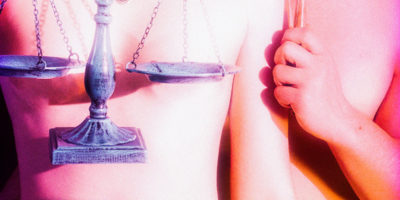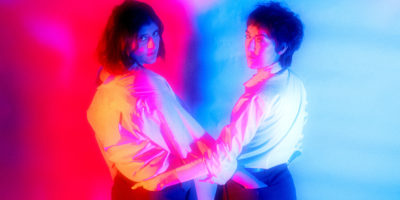By Ryan Starr
Lucky inspects the scene near the corner of Victoria and Gould Streets. Standing back from the crowd, he searches for his challenger through narrowed eyes. It’s only minutes past noon on an unusually warm October day, but the chess community at Hacksel Place has been at it for hours. Not a table is vacant. It’s as if Cezanne’s painting The Card Players has come to life. Men of varying backgrounds and tongues sit across from one another, absorbed in their respective matches, allies in agreed opposition. Spectators stand three deep, puffing at their cigarettes as they chat about the Mets and Stockwell Day, all the while soaking in the camaraderie and the sunshine.
Every so often, cars piece the heady Cuban music that drifts from the adjacent street bazaar. While the breeze carries with it the aroma of dried leaves, it is at times crudely overpowered by an intrusive cocktail of odours that’s best described as a mix of Salad King and dumpster funk. For the regulars, it’s all part of the ambiance.
Waiting for his challenger to arrive, Lucky asks if I’m interested in a game. I decline, not wanting to let on that I know next to nothing about chess. I prefer to hang back, wanting my first experience with Hacksel Place to be from the sidelines. Like many other Ryerson students, I’ve passed by this gathering place for years and never bothered to see it for what it really is. To outsiders, its culture can seem intimidating and crude. For the chessmen, Hacksel is its own community, with its own customs and characters.
Wanting to know more about this community of chess players, I approach Lucky, whom I believe will be able to give me an insider’s look into Hacksel. “So,” I ask, “why do you come here?”
Sporting a denim jacket, dirty white Reeboks, closely cropped black hair and a clean-shaven face, Lucky is reluctant to respond. I feel as if I’m an interloper with bad intentions. Perhaps you’re supposed to play first and ask questions later, or maybe the idea is to learn through experience, not inquiries.
Lucky, like most players I will later encounter, doesn’t wish to share the details of his life or even his full name. He is evasive, ostensibly so, probably because he wants to maintain a professional demeanour. After all, this is his place of business.
After a brief, silent pause in which it appears Lucky is trying to determine my motives, he shrugs his shoulders to convey indifference, and hesitantly offer his take on the matter.
“I like the atmosphere,” he says with a thick Mediterranean accent. “Different people talking and enjoying nice weather … I’m an outdoor kind of guy.”
That’s all I hear from Lucky. His long-awaited challenger arrives seconds after the words leave his mouth. The two greet each other with a mutual nod, an almost tribal form of consent, and take their respective places at a table that is now free. Lucky has already set up the board, and now all that’s left to do is play.
Even though onlookers chat around them, the social atmosphere doesn’t infiltrate the game. There’s no talking or even so much as prolonged eye contact between the two players. The stakes don’t seem high — a loonie and a quarter is all I see on the table — but you wouldn’t know that by observing Lucky. His attention is completely fixed on the board, his mind plotting decisive moves while anticipating those of his rival to ensure he maintains good standing in the tribe.
It’s a typical scene played out at Hacksel Place on any given day, barring blizzards or flash floods. Against the backdrop of Sam the Record Man, and footsteps away from Ryerson, this chess enclave is a long-established entity on Gould. Its history dates back to the mid 1970s, when chess players looking for casual challenges and the company of strangers brought boards and tables to the area. In 1979, as part of a City of Toronto improvement plan, six permanent concrete tables were installed and soon after, the informal scene became a hot spot for chess enthusiasts. (Four more tables have since been added).
Over the years, competitors from all walks of life have tried their luck at Hacksel, including Ryerson students. Sometimes, international chess champions stop by on their way through town, often defeating starry-eyed challengers in less than a minute.
Three years ago, a group of urban professionals attempted to form a chess federation out of the activity at Hacksel, aspiring to build the area into an organized community with greater funding and municipal subsidies. But the idea flopped because of a lack of organization and interest.
Perhaps the square was bound by its own history to remain an informal chess settlement. Its namesake, Alfred Hacksel, was known as a dominant and generous force in the community. He was born in East Prussia in 1937, immigrating to Canada 20 years later. He soon began making his presence known in the downtown chess circuit. Legend has it he played at Victoria and Gould every day until his death in 1994. He was such a fixture that the corner was named in his honour the following year at the behest of his mates. A plaque erected that same year near the chess tables says this about Hacksel: “[He] played decent and outrageously unconventional chess, three to four hours almost every day … always good-natured, he significantly helped out many of his fellow chess players.”
Hacksel’s legey appears to still wield an influence on the chess community at Gould. As Julio, the square’s self-proclaimed philosopher, puts it, “It’s like a permanent community … a rare inner-city hangout.”
Julio is a voice of authority in these parts. Born in Hungary, he has been coming here since the square’s burgeoning days in the 1970s.
The irony is he doesn’t play the game, but he has an uncanny knack for fleshing out the social dynamic of the place. His keen observations come from simply hanging out. Sometimes Julio comes to see old friends, other times to eat lunch and read the paper. For him, Hacksel is a place to relax and pass the time.
“People are generally pretty good here,” he says, his eyes unseen behind mirrored shades. “There’s a lot of mutual respect and positive activity happening.”
Although Hacksel is a place frequented mostly by regulars, Julio says it’s not exclusive. Anyone who wants to play is welcome. A sign on Hacksel’s plaque says: “Tables are for game playing only. NO reservations allowed.” Players take turns ensuring all comers get a fair shot and the spirit of the game is maintained.
Another regular, however, tells me to bear in mind that these things aren’t quite as altruistic as they seem. As Gary sees it, ulterior motives are at work behind the facade of sportsmanship. “They’re all $2 hustlers,” he explains. “There are all kinds of games that go on here that you don’t see happening.”
This could be an allusion to the side bets that are made as the matches proceed. Whatever the stakes, the wagers are not only a course of income for the Hackeselites, but also fuel the occasional conflict.
Julio concedes sometimes tensions run high, particularly when there’s a sense of what he calls “financial displacement.”
“There are fights,” he says. “Very few though, and usually one blown maximum, but there’s always a healthy degree of suspicion.
“I know guys who play the same game and have the same argument at least five times a week. There’s no shortage of egos, but in the end it’s all tongue-in-cheek.”
Whatever the shadier aspects of the area may be, Hacksel serves more as a gathering place for chess enthusiasts and community members alike, each favouring the interaction over the opportunity to line their pockets,
Julio believes Hacksel owes its unique flavour to Ryerson. He says the presence of the campus promotes cultural and intellectual expression at the square. “We could not exist without [the university],” he says. “Otherwise this would be just another downtown street dominated by commerce.”
Julio and the others know their little chess community may be living on borrowed time in this urban jungle. A whim on the part of a hungry developer could spell the end Hacksel.
“We’re an example of an overlooked element in the city,” Julio says. “I can see that this area is destined for rezoning and probably in the near future, this will all be gone.”
And this could very well be true. Across the street from Julio, AMC Entertainment Inc. had begun work on a megaplex movie theatre — part of Yonge-Dundas redevelopment — that’s slated to open some time next year. With its construction, new plans for Hacksel may come.
As I glance around Victoria and Gould with a new impression of the area, Lucky catches my eye. He’s made quick work of his challenger, who now stands watching as Lucky searches for his next conquest. Apparently out victor knows what he’s doing and I feel vindicated for not having accepted his initial challenge to play. It could have been me over there emptying my pockets of loonies and quarters.
Still, I can’t help but feel I’m going to miss out by not playing, and I decide to give it a go. All I need is a quick lesson in the art of chess and I’ll be ready to cut it with the big boys. Armed with a new-found courage, I casually ask for a few introductory pointers.
“No” is the response I get.
The rejection dashed my hopes like the inevitable “checkmate.” I guess one shouldn’t come here looking for a crash course in rudimentary strategy. Although the square is not exclusive, to become a true Hackselite you must know the rules.












Leave a Reply